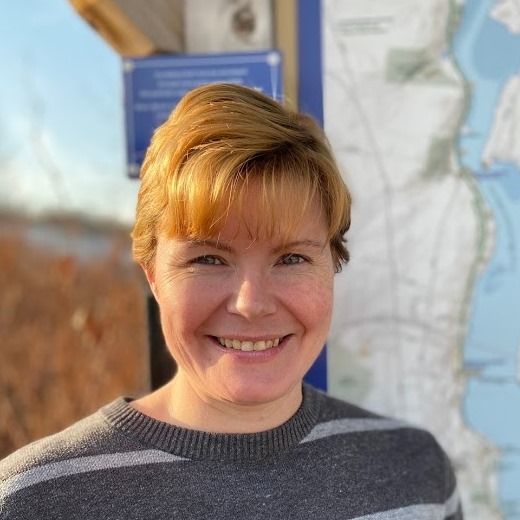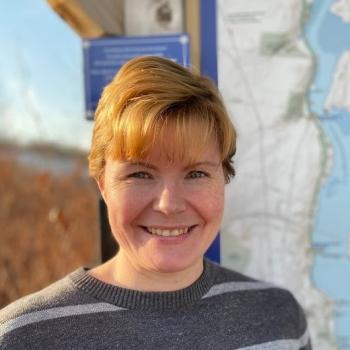Black pride recenters the movement for change
Black Lives Matter.
The phrase uttered on the lips of nearly every American now carries an extra weight of urgency and meaning. White people like myself are moving beyond thinking that just being a good person is enough, and our silence, deafening complicity.
The explosive energy that is rejuvenating the BLM movement comes during a time when we also spend highlighting the challenges and celebrations of the LGBTQ community. But just as Black Lives Matter asks us to re-examine systemic promotion of racism within its foundations, the Pride movement gives us an illustration of its effects.
The LGBTQ community has experienced years of harmful systemic oppression. Black men and women, same-gender-loving people of color, are a minority’s minority, experiencing discrimination within the community, as well as in larger society. Martha P. Johnson and Silvia Rivera, two trans women of color, have long been associated with the Stonewall Riots which launched the Pride Movement. Shamefully, the protests for justice that began in the 60’s foreshadowed the cascade of similar events over the next 50 years.
LGBTQ People of Color are more likely to live in poverty, be uninsured, and experience high rates of housing insecurity, where homeownership is often out of reach. Black LGBTQ Americans are six times more likely to experience police brutality. Black transgender people face the highest levels of fatal violence, and of LGBTQ youth in juvenile detention facilities, most of them are youth of color..
Among the Black transgender community, approximately 27 percent are out of work without meaningful response for decades. This is in stark contrast to the massive relief bill enacted to curb the nationwide unemployment rate, which has risen to nearly 30% in the last three months. Is it only when a systemic problem affects white people in large numbers that we are moved to act? The unacceptable answer is usually, yes.
While the nation focused on the Pandemic, mourners in Alabama recognized the one-year anniversary of Nigel Shelby’s suicide, a 15 year old, openly gay teen that had been cruelly bullied by his peers. 29-year-old McKinsely Lincoln was found mysteriously dead of a gunshot wound in Louisiana on May 15. Just days after the public, brutal boot-lynching of George Floyd, Tony McDade’s May 29th murder in Tallahassee is thought to be the 12th violent death of a transgender or gender nonconforming person so far this year in the U.S., according to the Human Rights Campaign.
The Pride Movement helps to expose the many ways that living “while black” encompasses who you love. I am a gender nonconforming, openly gay mom of a transgender son and my unearned white privilege has protected me from the atrocities I’ve described. I’ve benefited greatly from the work behind Pride and the lifestyles we now have the options of choosing. For young black youth, there is more to fear when “coming out” as they fight for acceptance because of race.
This problem is intense, widespread, and ingrained in our behavior and our history. To change this narrative, community leaders must demonstrate this reformation with a renewed mind and transparency. We must come down hard on known discrimination and propose tough, radical changes to a system that discriminates, disadvantages, and disposes of black lives, including black LGBTQ communities.
Legislative solidarity can be demonstrated by establishing a Committee within the Maine Legislature, tasked with researching the racial and economic disparities of minority ethnic groups. We need to be vigilant about addressing the racial impact of current law, and to put forward considerable effort in seeking out the perspectives and representation of People of Color in the lawmaking sphere.
Maine needs to address police operations to ensure that our Criminal Justice System reflects renewed human values. Support a measure that would create a Criminal Records Review Committee, and offer remunerations for fines and jail time incurred. One suggestion to centralize police training includes a proposed regulatory licensing board, an idea that needs to be thoroughly explored. Defund the militarization of police forces, and find alternatives for sending children to jail. Remember, what we invest in will continue to grow.
Invest in our communities. Increase the use of social workers to respond to mental health issues that are not a threat to public safety. Keep people with substance use concerns out of prisons and get them help. Make sure that children have adult mentors that they trust. And finally, finally, recognize black history and culture in Maine schools, ensuring that the narrative of black lives in America shows the impact of long term and widespread racism in our country.
We can move beyond Black Lives Matter as a minimum, affirming that they are also loved, needed, and worthy of our efforts to ensure that they can live as our friends, neighbors, teachers, students, employees, and employers with dignity, and justice.
Black Lives Matter. Black Lives Matter. Black Lives Matter.
Robyn Stanicki is running as a Democrat for the Senate seat currently occupied by Erin Herbig, who has declined to seek reelection in November. Stanicki, a Belfast resident, is an experienced policy advocate that has been working with legislators and working groups to promote diversity, equity, and inclusion in state government. For more information on how to get involved or donate to her campaign visit robynstandsforme.com.
Event Date
Address
United States
























